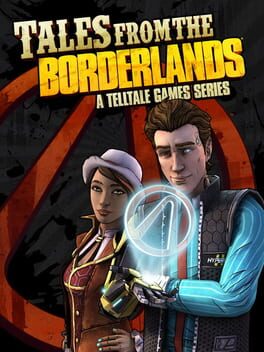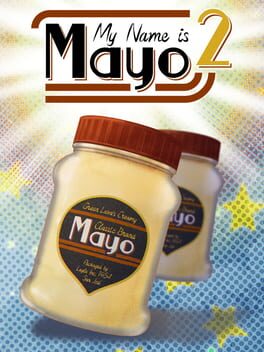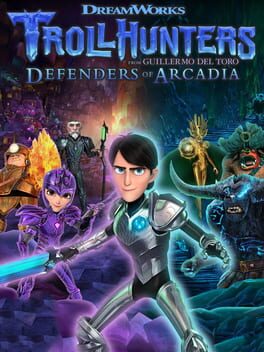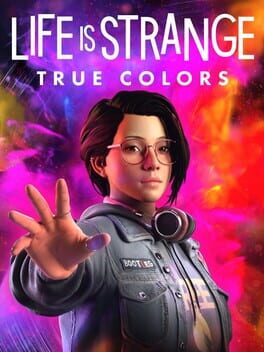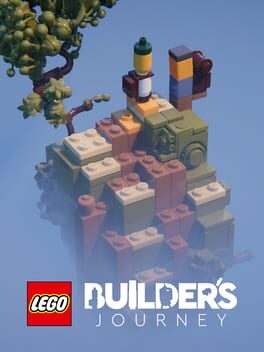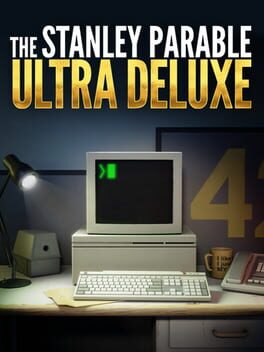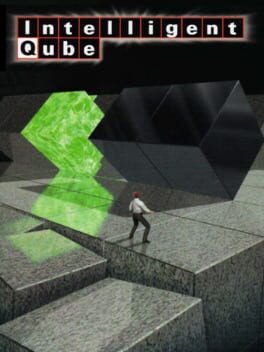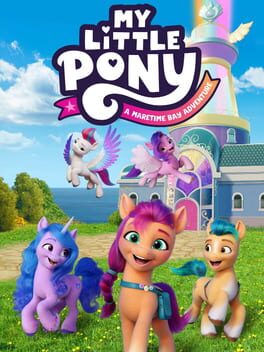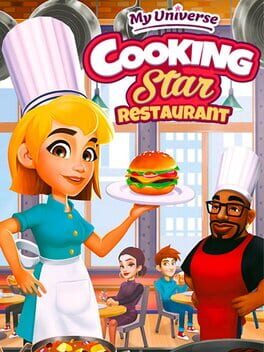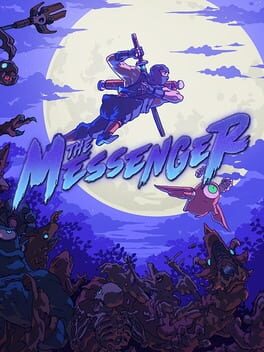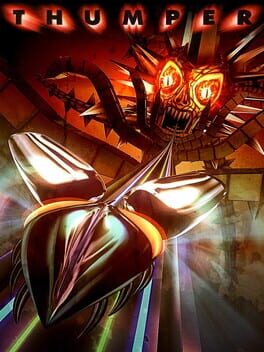Speady
BACKER
2020
For those fortunate enough to own a PSVR unit, they would tell you that 2018's exclusive Astro Bot Rescue Mission was an absolutely phenomenal 3D platformer. The devs over at Sony Japan Studio's ASOBI Team struck gold with this cute little mascot platformer, and they've done it once again!
I was a bit skeptical at first, thinking they wouldn't be able to capture the magic of Astro Bot without the VR immersion...and I was completely wrong. Astro's Playroom, a FREE pack-in "tech demo" for the PlayStation 5, is just as charming as its predecessor! All the controller showcases and gimmicks aside, such as the adaptive triggers and motion sensor, it's a tight 3D platformer that pays tribute to PlayStation's legacy. Not only are the main collectibles throughout this game various generations of PlayStation hardware, but the worlds are scattered with lots of cute little easter eggs and throwbacks to the history of SIE and their IP. (I'm not kidding. They really dive deep into the 26 years of PlayStation history.)
As a longtime PlayStation fan and video game historian, I think Astro's Playroom is some of the best piece of content that Japan Studio has put out in some time now...and it's FREE! Whether you're looking for a charming 3D platformer, or even an easy Platinum trophy, this title is absolutely worth checking out when you pick up your new PS5. It really is incredible!
I was a bit skeptical at first, thinking they wouldn't be able to capture the magic of Astro Bot without the VR immersion...and I was completely wrong. Astro's Playroom, a FREE pack-in "tech demo" for the PlayStation 5, is just as charming as its predecessor! All the controller showcases and gimmicks aside, such as the adaptive triggers and motion sensor, it's a tight 3D platformer that pays tribute to PlayStation's legacy. Not only are the main collectibles throughout this game various generations of PlayStation hardware, but the worlds are scattered with lots of cute little easter eggs and throwbacks to the history of SIE and their IP. (I'm not kidding. They really dive deep into the 26 years of PlayStation history.)
As a longtime PlayStation fan and video game historian, I think Astro's Playroom is some of the best piece of content that Japan Studio has put out in some time now...and it's FREE! Whether you're looking for a charming 3D platformer, or even an easy Platinum trophy, this title is absolutely worth checking out when you pick up your new PS5. It really is incredible!
2020
The publisher Outright Games is notable for putting out nothing but licensed video games, so it was best for me to go in with low expections. (I played their How To Train Your Dragon game that felt like a Zelda clone.) However, what I was surprised about this title was seeing that WayForward actually developed this one.
Defenders Of Arcadia is some weird hybrid clone of Mega Man and Shantae, based on the popular (and my personal favorite) DreamWorks series on Netflix. I say this as some of the main combat mechanics consist of melee combat and sliding.
As a game itself, it's bland and forgettable. However, I'm surprised by certain unique designs in this game, such as the addition of "side quests" that encourage a bit of backtracking through previous 2.5D levels. The use of character summons is a neat way to get around certain puzzles, too. Even the differences in boss fight mechanics between the two difficulties is nice to see as well. The rest feels as cheap as I expected from a licensed video game. The currency requires some ridiculous grinding to fully unlock all the abilities and equipment, and some of the mini-games aren't fully fleshed out.
As a fan of Trollhunters though, this was a fun romp. It's not the game I would've wanted from this IP, but it has TONS of nods to the series that most fans would get a kick out of. (And to my surprise too, the story ties into 3Below and Wizards as well.) It "feels" like a good 2.5D action platformer though, and I think that's good enough. Just don't go out paying full price for it.
And for those who are looking for some easy trophies or achievements, this is a great pick...aside from the required two playthroughs. Will cost you about 5-6 hours tops to get everything.
Defenders Of Arcadia is some weird hybrid clone of Mega Man and Shantae, based on the popular (and my personal favorite) DreamWorks series on Netflix. I say this as some of the main combat mechanics consist of melee combat and sliding.
As a game itself, it's bland and forgettable. However, I'm surprised by certain unique designs in this game, such as the addition of "side quests" that encourage a bit of backtracking through previous 2.5D levels. The use of character summons is a neat way to get around certain puzzles, too. Even the differences in boss fight mechanics between the two difficulties is nice to see as well. The rest feels as cheap as I expected from a licensed video game. The currency requires some ridiculous grinding to fully unlock all the abilities and equipment, and some of the mini-games aren't fully fleshed out.
As a fan of Trollhunters though, this was a fun romp. It's not the game I would've wanted from this IP, but it has TONS of nods to the series that most fans would get a kick out of. (And to my surprise too, the story ties into 3Below and Wizards as well.) It "feels" like a good 2.5D action platformer though, and I think that's good enough. Just don't go out paying full price for it.
And for those who are looking for some easy trophies or achievements, this is a great pick...aside from the required two playthroughs. Will cost you about 5-6 hours tops to get everything.
*♫ "But I'm a creep
I'm a weirdo
What the hell am I doin' here?
I don't belong here" ♫*
There's always been something that makes the Life Is Strange series so magical to me. True Colors is a return to form of what made the original game special, while also fixing most of the issues that people had with the previous entries. The episodic nature is gone (although optional), the story is more fleshed out, the graphics and animations are more realistic, and your choices actually feel like they matter this time.
Life Is Strange: True Colors has a story that returns to the roots of the 2015 entry, while shifting things a bit. This isn't a story without superpowers, nor is it a story about trekking through several locales. True Colors is about a girl with already-established superhuman abilities who is thrown into a small town conspiracy as she struggles to be accepted. It's like the series grew up alongside me, going from the first game's high-schooler protagonists to True Colors's adult characters (the main character of which is a musician, which I can relate to). No "cringe" dialogue here, just brilliant adult writing that makes each one of these characters incredible fleshed out, whether you choose to seek out their stories or not. I laughed, I got chills, and I felt heartbroken at times. There are even several moments that seem to be inspired by the likes of Captain Spirit, fully capturing the emotions and feeling of the individuals that Alex reads; some incredible fantasy-like imagery. And I know writing is on-point when, while I was splitting up each chapter one or two per week, I was excited to hop in every time and see where the story was going to go. It learns to take your own emotions and twist them in relatable scenarios during its well-paced 10-hour narrative.
Gameplay here is incredibly improved as well. As mentioned as a critique for the previous games, these stories never really felt like your choices mattered...until now. It wasn't until the later half of the story that I realized that even the slightest interactions with each of the characters in this small town can impact certain pieces later on. And by the time the final chapter is reached, you truly see every variable at play here and how they affect the outcome. It's not on the permutation level of something from Quantic Dream, but it's a very impressive feat for Deck Nine's second attempt at an adventure game. This is on the level of CRPGs.
As for the actual adventure game mechanics, it's a simple interaction-heavy game, although the story itself takes this traditional design for a turn during certain moments. No spoilers, but True Colors would sometimes look towards an "escape room" aspect of puzzle solving, and even to other genres that might surprise certain players. It's incredibly accessible as well; the puzzles feeling brilliant at times and easy to solve.
Of course, this can't be a Life Is Strange game without a great soundtrack, and True Colors actually provides an absolutely INCREDIBLE set of tracks. The licensed music helps establish the story's setting with some notable tracks and indie tunes, while the actual music score provides a haunting, otherwordly feeling to emotions going through Alex's head throughout several sequences. From the opening scenes to the end credits, the music invokes a true adult drama about settling into a community. Shoutout to mxmtoon for the really awesome set of singles created specifically for True Colors.
The game isn't completely flawless. (No game is.) Other than a few performance issues, I only have two minor critiques that, although personal complaints, leave room for improvement in any future game.
Firstly, the game allows you to read texts and posts from other Haven citizens, but doesn't quite catch you up on the things you missed. I understand the intention of this is to have the player see what happened between time jumps, but it would've been easier to queue these unread messages in reverse order so I don't have to scroll up.
Second, the one thing I loved about Before The Storm was the opening introductions to each episode/chapter. With True Colors, all we get is a simple black screen and title card which, while I get that the game is moving away from the episodic nature, shows a slight lack in quality compared to the production of Before The Storm. Thankfully this is balanced out by the rest of the game. Just a tiny desire.
True Colors is a perfect example of succeeding those that came before. One that's not only accessible to longtime fans, but one that might bring newcomers into the genre. Alongside gameplay and narrative improvements, it also boasts a modern production with gorgeous graphics and motion capture technology to emphasis the emotions at play.
It is arguably the best game in the series. Let's just hope we don't go downhill from here.
I'm a weirdo
What the hell am I doin' here?
I don't belong here" ♫*
There's always been something that makes the Life Is Strange series so magical to me. True Colors is a return to form of what made the original game special, while also fixing most of the issues that people had with the previous entries. The episodic nature is gone (although optional), the story is more fleshed out, the graphics and animations are more realistic, and your choices actually feel like they matter this time.
Life Is Strange: True Colors has a story that returns to the roots of the 2015 entry, while shifting things a bit. This isn't a story without superpowers, nor is it a story about trekking through several locales. True Colors is about a girl with already-established superhuman abilities who is thrown into a small town conspiracy as she struggles to be accepted. It's like the series grew up alongside me, going from the first game's high-schooler protagonists to True Colors's adult characters (the main character of which is a musician, which I can relate to). No "cringe" dialogue here, just brilliant adult writing that makes each one of these characters incredible fleshed out, whether you choose to seek out their stories or not. I laughed, I got chills, and I felt heartbroken at times. There are even several moments that seem to be inspired by the likes of Captain Spirit, fully capturing the emotions and feeling of the individuals that Alex reads; some incredible fantasy-like imagery. And I know writing is on-point when, while I was splitting up each chapter one or two per week, I was excited to hop in every time and see where the story was going to go. It learns to take your own emotions and twist them in relatable scenarios during its well-paced 10-hour narrative.
Gameplay here is incredibly improved as well. As mentioned as a critique for the previous games, these stories never really felt like your choices mattered...until now. It wasn't until the later half of the story that I realized that even the slightest interactions with each of the characters in this small town can impact certain pieces later on. And by the time the final chapter is reached, you truly see every variable at play here and how they affect the outcome. It's not on the permutation level of something from Quantic Dream, but it's a very impressive feat for Deck Nine's second attempt at an adventure game. This is on the level of CRPGs.
As for the actual adventure game mechanics, it's a simple interaction-heavy game, although the story itself takes this traditional design for a turn during certain moments. No spoilers, but True Colors would sometimes look towards an "escape room" aspect of puzzle solving, and even to other genres that might surprise certain players. It's incredibly accessible as well; the puzzles feeling brilliant at times and easy to solve.
Of course, this can't be a Life Is Strange game without a great soundtrack, and True Colors actually provides an absolutely INCREDIBLE set of tracks. The licensed music helps establish the story's setting with some notable tracks and indie tunes, while the actual music score provides a haunting, otherwordly feeling to emotions going through Alex's head throughout several sequences. From the opening scenes to the end credits, the music invokes a true adult drama about settling into a community. Shoutout to mxmtoon for the really awesome set of singles created specifically for True Colors.
The game isn't completely flawless. (No game is.) Other than a few performance issues, I only have two minor critiques that, although personal complaints, leave room for improvement in any future game.
Firstly, the game allows you to read texts and posts from other Haven citizens, but doesn't quite catch you up on the things you missed. I understand the intention of this is to have the player see what happened between time jumps, but it would've been easier to queue these unread messages in reverse order so I don't have to scroll up.
Second, the one thing I loved about Before The Storm was the opening introductions to each episode/chapter. With True Colors, all we get is a simple black screen and title card which, while I get that the game is moving away from the episodic nature, shows a slight lack in quality compared to the production of Before The Storm. Thankfully this is balanced out by the rest of the game. Just a tiny desire.
True Colors is a perfect example of succeeding those that came before. One that's not only accessible to longtime fans, but one that might bring newcomers into the genre. Alongside gameplay and narrative improvements, it also boasts a modern production with gorgeous graphics and motion capture technology to emphasis the emotions at play.
It is arguably the best game in the series. Let's just hope we don't go downhill from here.
There's not much to say about LEGO Builder's Journey. I was personally a bit underwhelmed by it.
The game's strongest factor is in its visual direction. It looks absolutely stunning, especially with ray-tracing enabled, and I'm quite surprised this is built off Unity. It also has a nice and calm soundtrack that helps invoke a sense of zen, eeriness, and nostalgia.
Unfortunately, the rest of the game falls flat a bit. Don't get me wrong, I appreciate the minimalist approach to things, and I shouldn't really mark the game down for its story not being as emotional as I thought it would be. But its segmented level design is both friendly and damaging to the core gameplay, and the game's flaws are more apparent than anything else. There are sections that promo creativity for sure, but there are also sections that introduce new gameplay mechanics that aren't necessarily repeated much later on. Also, its minimalist approach to explanations also hurts it, as there is sometimes no indication of where the player must go to reach their goal. I'm actually kinda surprised others found this game to be so easy, because I was kinda perplexed a few times.
Not a bad game, but it's definitely more of a visual showcase than anything.
The game's strongest factor is in its visual direction. It looks absolutely stunning, especially with ray-tracing enabled, and I'm quite surprised this is built off Unity. It also has a nice and calm soundtrack that helps invoke a sense of zen, eeriness, and nostalgia.
Unfortunately, the rest of the game falls flat a bit. Don't get me wrong, I appreciate the minimalist approach to things, and I shouldn't really mark the game down for its story not being as emotional as I thought it would be. But its segmented level design is both friendly and damaging to the core gameplay, and the game's flaws are more apparent than anything else. There are sections that promo creativity for sure, but there are also sections that introduce new gameplay mechanics that aren't necessarily repeated much later on. Also, its minimalist approach to explanations also hurts it, as there is sometimes no indication of where the player must go to reach their goal. I'm actually kinda surprised others found this game to be so easy, because I was kinda perplexed a few times.
Not a bad game, but it's definitely more of a visual showcase than anything.
Stanley once played a PC game back in the day called The Stanley Parable, but never fullly saw all the endings through. After checking out The Beginner's Guide, the follow-up metatextual narrative adventure from Davey Wreden, Stanley began to turn around to the idea of the genre. So when Crows Crows Crows announced they would be repackaging the original experience and adding new content, for a first-time console release, Stanley had to play through it to his heart's content. Upon completing Ultra Deluxe, Stanley had realized that such a game like this is quite difficult to explain without someone experiencing it for themselves.
(Okay, enough with referring to myself as "Stanley". Let's talk about this one.)
The Stanley Parable, in a sense, is a first-person adventure game with branching paths; one that invokes a sense of questioning and intrigue to the player. On paper, it sounds like it may not be a game for everyone, but it invites the average gamer in with surprises and comedy unlike anything ever seen in a video game before. And for those (like myself) who are invested in game development and the industry at hand, it is a brilliant satire for using the same storytelling and game design tropes in repetition, often invoking a sense of insanity to the player as they seek out all the possible endings and paths that lead you to them. One moment you are walking through a loop hallway, then another moment you find yourself trying to stop a nuclear bomb from going off. No spoilers, but there are a LOT of branching story beats that are sure to confuse and humor the hell out of you.
I'm not normally into games like Outer Worlds, Twelve Minutes, and many others lately that require time loops to discover new things, but The Stanley Parable does it in such a way that doesn't feel too monotonous. It really is quite hard to explain to those unfamiliar with these kinds of games, but it truly is one of the more deeper branching narratives I've seen in the genre. I found myself even charting my own paths on a piece of paper and falling down that whole rabbit hole, it's fantastic. And even after all of my hours spent, I feel like I've barely scratched the surface.
As for the Ultra Deluxe content, it doesn't branch out as much as the main content, but rather offers yet another metatextual commentary on the idea of added content and sequalizing video game franchises, even pulling in reviews from the original game at times to make a point. If you're already strapped in from the opening hour or so of the main game, this new story content is an absolutely brilliant follow-up/epilogue to the game that began back in 2011.
I laughed, cried, felt eeriness, fear, and went through various emotions with this game, and I'm sure many others will too. There's just nothing else out there like The Stanley Parable. It's a video game that plays you.
And like the loading screens say, the end is never the end is never the end is never the end is never the end is never the end is never the end is never the end is never the end is never the end is never the end is never the end is never the end is never the end is never the end is never the end is never the end is never the end is never the end is never the end is never the end is never the end is never the end is never the end is never the end is never the end is never the end is never the end is never the end is never the end is never the end is never the end is never the end is never the end is never the end is never the end is never the end is never the end is never the end is never the end is never the end is never the end is never the end is never the end is never the end is never the end is never the end is never the end is never the end is never the ...
(Okay, enough with referring to myself as "Stanley". Let's talk about this one.)
The Stanley Parable, in a sense, is a first-person adventure game with branching paths; one that invokes a sense of questioning and intrigue to the player. On paper, it sounds like it may not be a game for everyone, but it invites the average gamer in with surprises and comedy unlike anything ever seen in a video game before. And for those (like myself) who are invested in game development and the industry at hand, it is a brilliant satire for using the same storytelling and game design tropes in repetition, often invoking a sense of insanity to the player as they seek out all the possible endings and paths that lead you to them. One moment you are walking through a loop hallway, then another moment you find yourself trying to stop a nuclear bomb from going off. No spoilers, but there are a LOT of branching story beats that are sure to confuse and humor the hell out of you.
I'm not normally into games like Outer Worlds, Twelve Minutes, and many others lately that require time loops to discover new things, but The Stanley Parable does it in such a way that doesn't feel too monotonous. It really is quite hard to explain to those unfamiliar with these kinds of games, but it truly is one of the more deeper branching narratives I've seen in the genre. I found myself even charting my own paths on a piece of paper and falling down that whole rabbit hole, it's fantastic. And even after all of my hours spent, I feel like I've barely scratched the surface.
As for the Ultra Deluxe content, it doesn't branch out as much as the main content, but rather offers yet another metatextual commentary on the idea of added content and sequalizing video game franchises, even pulling in reviews from the original game at times to make a point. If you're already strapped in from the opening hour or so of the main game, this new story content is an absolutely brilliant follow-up/epilogue to the game that began back in 2011.
I laughed, cried, felt eeriness, fear, and went through various emotions with this game, and I'm sure many others will too. There's just nothing else out there like The Stanley Parable. It's a video game that plays you.
And like the loading screens say, the end is never the end is never the end is never the end is never the end is never the end is never the end is never the end is never the end is never the end is never the end is never the end is never the end is never the end is never the end is never the end is never the end is never the end is never the end is never the end is never the end is never the end is never the end is never the end is never the end is never the end is never the end is never the end is never the end is never the end is never the end is never the end is never the end is never the end is never the end is never the end is never the end is never the end is never the end is never the end is never the end is never the end is never the end is never the end is never the end is never the end is never the end is never the end is never the end is never the ...
1997
Get ready to think... or die.
Intelligent Qube is an odd entity from G-Artists and Sony Computer Entertainment, one that is both masterful and underappreciated. I can gush about this game all day, so here are my brief thoughts after finally accomplishing a full playthrough.
I.Q. is a puzzle game, wherein the player scores points by capturing blocks...while trying to survive in the process. There are several variables at play throughout the game but, most importantly, I.Q. focuses on avoiding being crushed by a set of randomly-assorted cubes rolling towards you each round, moving in clockwork while also trying to push you off the stage itself. You perfectly capture a set of normal cubes during a round? You're granted an extra row/tick on the stage. But what if you accidentally capture a forbidden cube, or even let some cubes fall off the stage? Well, that row on the stage falls apart.
It didn't take too long for me to fully grasp certain strategies, especially using advantage cubes as ways to look ahead and capture normal cubes without hitting any forbidden ones, which just shows how incredible this game is by its own design. Alongside all of that, I.Q. invokes several emotions through its ominous sound design, hypnotic-looking stages (with a tiny character to scale against the cubes), and an orchestral soundtrack that you absolutely wouldn't expect from a game of this nature. It all just works as a byproduct of early Sony Computer Entertainment; the dark and mysterious wonder of polygonal art that rose in the late 90s.
Intelligent Qube deserves to be high up there with other notable puzzle games like Tetris and Panel De Pon, one that shows its quality in both production and replayability. It's brilliant, haunting, and has really never been replicated after more than 20 years now. So please, for the love of god, go experience this piece of work for yourself. One of SCE's finest from their first home console.
And of course, in the words of the game's ecstatic announcer: "Perfect!"
Intelligent Qube is an odd entity from G-Artists and Sony Computer Entertainment, one that is both masterful and underappreciated. I can gush about this game all day, so here are my brief thoughts after finally accomplishing a full playthrough.
I.Q. is a puzzle game, wherein the player scores points by capturing blocks...while trying to survive in the process. There are several variables at play throughout the game but, most importantly, I.Q. focuses on avoiding being crushed by a set of randomly-assorted cubes rolling towards you each round, moving in clockwork while also trying to push you off the stage itself. You perfectly capture a set of normal cubes during a round? You're granted an extra row/tick on the stage. But what if you accidentally capture a forbidden cube, or even let some cubes fall off the stage? Well, that row on the stage falls apart.
It didn't take too long for me to fully grasp certain strategies, especially using advantage cubes as ways to look ahead and capture normal cubes without hitting any forbidden ones, which just shows how incredible this game is by its own design. Alongside all of that, I.Q. invokes several emotions through its ominous sound design, hypnotic-looking stages (with a tiny character to scale against the cubes), and an orchestral soundtrack that you absolutely wouldn't expect from a game of this nature. It all just works as a byproduct of early Sony Computer Entertainment; the dark and mysterious wonder of polygonal art that rose in the late 90s.
Intelligent Qube deserves to be high up there with other notable puzzle games like Tetris and Panel De Pon, one that shows its quality in both production and replayability. It's brilliant, haunting, and has really never been replicated after more than 20 years now. So please, for the love of god, go experience this piece of work for yourself. One of SCE's finest from their first home console.
And of course, in the words of the game's ecstatic announcer: "Perfect!"
1997
I've dabbled with a lot of Hot Shots games since my childhood, but never actually saw these older ones through until now.
The original Hot Shots Golf (or Everybody's Golf, depending on your region), shows its age, but I could appreciate its basis. This was the first of its kind, the only one developed by Camelot Software Planning before the IP and genre would be split off; Camelot to Mario Golf and director Masashi Muramori to found Clap Hanz, the future of the franchise set. I love the charm here for 1998, with the 2D sprites and 3D cartoon models being placed on top of flat terrain. Even gotta give props to Motoi Sakuraba (yes, the same guy who did music for Golden Sun and Dark Souls) for some of these tracks, which invoke some relaxing, nostalgic tones.
As a golfing game though, it's a mixed bag. Like I said, it's a basis from its own time, but nothing's really perfected yet. Standard tournaments to unlock courses, VS mode to unlock characters, mini-golf, there's a lot here. However, the brilliant two-click gameplay conflicts itself with some incredibly inaccurate, input-laggy physics and calculations. I'm not looking for anything precise here, but make certain shots more than just a regional approximation.
Again, old game is old, but it has its charming moments. I know the series only goes up from here.
The original Hot Shots Golf (or Everybody's Golf, depending on your region), shows its age, but I could appreciate its basis. This was the first of its kind, the only one developed by Camelot Software Planning before the IP and genre would be split off; Camelot to Mario Golf and director Masashi Muramori to found Clap Hanz, the future of the franchise set. I love the charm here for 1998, with the 2D sprites and 3D cartoon models being placed on top of flat terrain. Even gotta give props to Motoi Sakuraba (yes, the same guy who did music for Golden Sun and Dark Souls) for some of these tracks, which invoke some relaxing, nostalgic tones.
As a golfing game though, it's a mixed bag. Like I said, it's a basis from its own time, but nothing's really perfected yet. Standard tournaments to unlock courses, VS mode to unlock characters, mini-golf, there's a lot here. However, the brilliant two-click gameplay conflicts itself with some incredibly inaccurate, input-laggy physics and calculations. I'm not looking for anything precise here, but make certain shots more than just a regional approximation.
Again, old game is old, but it has its charming moments. I know the series only goes up from here.
2007
I've played through this game at least 7 different times through my years of gaming, and each playthrough makes me appreciate just how perfect this design is.
It's a short experience yes, but it's expected for a title packed in The Orange Box, arguably one of the best compilations in gaming. What we have with Portal is a puzzle game that relies on a straightforward mechanic of moving between two points, with several obstacles like pressure pads and turrets along your way; everything taught insanely well to the player through its set of 19 test chambers. And of course, after all the testing, everything comes together to perfection, as every single mechanic is used in your favor through the very end. A unique, well-paced puzzle game for its time, which brings a dark comedy adventure to the player.
15 years ago, this was a triumph.
15 years later, it still is.
It's a short experience yes, but it's expected for a title packed in The Orange Box, arguably one of the best compilations in gaming. What we have with Portal is a puzzle game that relies on a straightforward mechanic of moving between two points, with several obstacles like pressure pads and turrets along your way; everything taught insanely well to the player through its set of 19 test chambers. And of course, after all the testing, everything comes together to perfection, as every single mechanic is used in your favor through the very end. A unique, well-paced puzzle game for its time, which brings a dark comedy adventure to the player.
15 years ago, this was a triumph.
15 years later, it still is.
Decided to play this one just because of the straightforward Platinum trophy. About 7 hours logged (according to PS5 tracking).
I've played several cooking/management games in my lifetime, but this one's a bust. There's no consequence to having customers wait on their food, nor is there consequence to running out of time during the cooking mini-games. All of these issues make this one feel like a repetitive chore than an engaging restaurant management game.
There's even some more minor annoyances like limiting player interactions during certain sequences. For example, you aren't allowed to clear a table or take any customers when there's a prompt over one of the chefs that wants to talk to you.
If you're really interested in getting a straightforward Platinum trophy, just hope you can tolerate lackluster cooking mini-games.
I've played several cooking/management games in my lifetime, but this one's a bust. There's no consequence to having customers wait on their food, nor is there consequence to running out of time during the cooking mini-games. All of these issues make this one feel like a repetitive chore than an engaging restaurant management game.
There's even some more minor annoyances like limiting player interactions during certain sequences. For example, you aren't allowed to clear a table or take any customers when there's a prompt over one of the chefs that wants to talk to you.
If you're really interested in getting a straightforward Platinum trophy, just hope you can tolerate lackluster cooking mini-games.
2016
2018
2016
